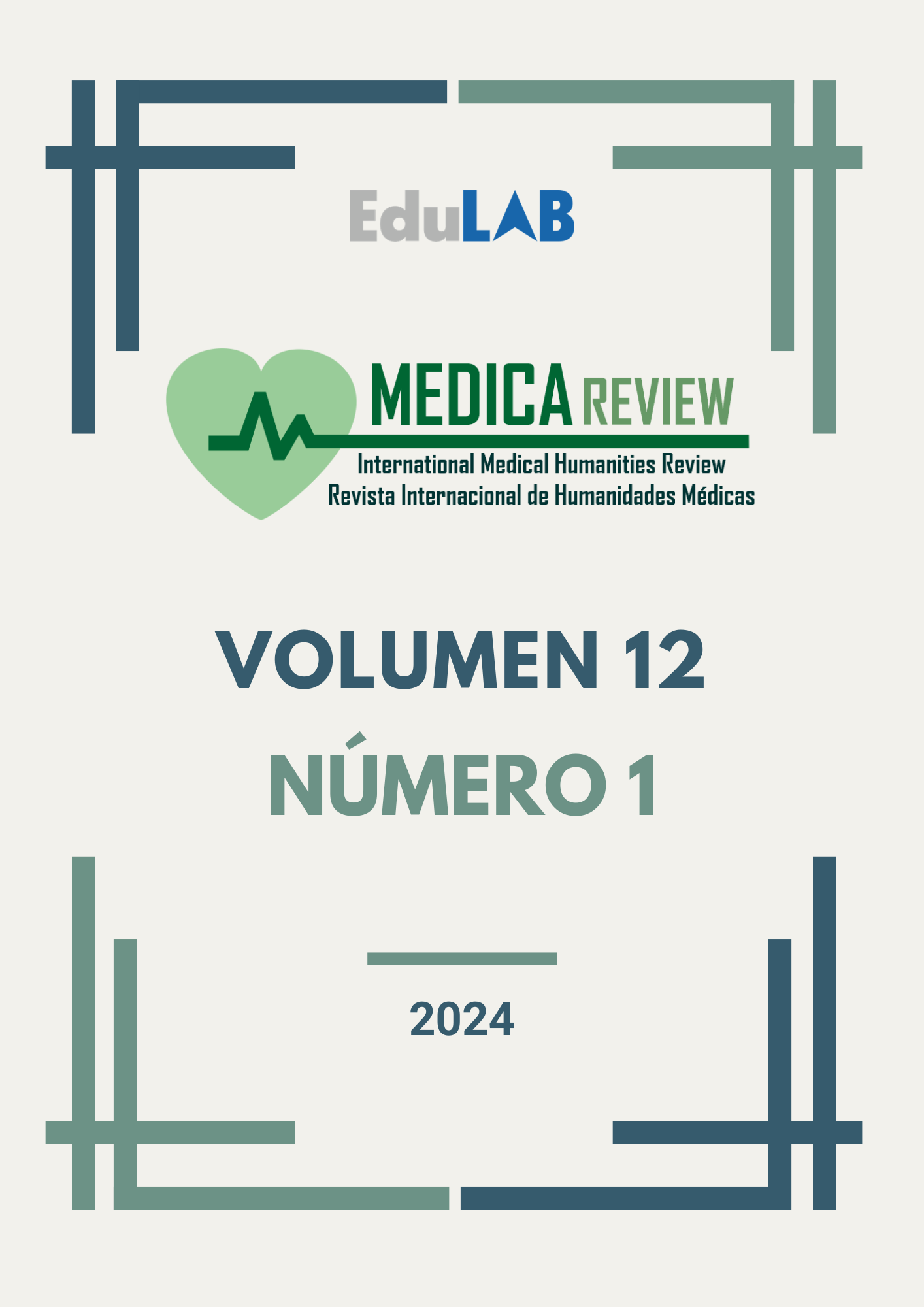Equinoterapia como herramienta terapéutica e inclusiva: Beneficios psicofísicos y socioemocionales en personas con discapacidad
DOI:
https://doi.org/10.62701/revmedica.v12.5429Keywords:
Equine therapy, disability, social inclusion, psychomotor development, emotional well-being, qualitative researchAbstract
The study from a qualitative phenomenological approach explores psychophysical, social and emotional benefits of equine therapy as a therapeutic and inclusive intervention for people with disabilities through interviews carried out with a multidisciplinary team from a social assistance program. The objective was to understand how professionals experience and perceive the effects of equine therapy in their student patients. The results coincide with the literature, highlighting that equine therapy develops motor skills, improves muscle tone, regulates emotions, socially includes helping to participate in group activities and develops socio-emotional skills, increasing self-esteem and confidence, which favors the emotional well-being of the student/patients. The importance of continuing to promote equine therapy is highlighted, addressing the logistical and economic barriers that hinder its expansion, underlining the need for more studies and resources to guarantee that the benefits of therapeutic practices are accessible to more people with disabilities.
Global Statistics ℹ️
|
1477
Views
|
908
Downloads
|
|
2385
Total
|
|
References
Creswell, J. W. (2013). Qualitative inquiry and research design: Choosing among five approaches (3rd ed.). SAGE Publications.
Esquivel-Grados, J. T., Venegas-Mejía, C. P., Esquivel-Grados, M. N., & Gonzales-Benites, M. T. (2023). Las muestras en investigaciones educativas. Un estudio de pertinencia y suficiencia en tesis de posgrado. HUMAN REVIEW. International Humanities Review/Revista Internacional de Humanidades, 21(2), 355-369. https://eaapublishing.org/journals/index.php/humanrev/article/view/1743/1860
García, A., & Martínez, R. (2021). Impacto de la equinoterapia en la rehabilitación física de personas con discapacidades motoras. Revista de Terapias Alternativas, 34(2), 101-112.
González, M., López, J., & Martínez, C. (2023). Avances recientes en la equinoterapia: Perspectivas y desafíos en su implementación. Journal of Disability and Rehabilitation, 48(3), 58-64.
Kaiser, L., Johnson, C., & Peterson, A. (2021). Social inclusion through equine therapy: Enhancing social participation for individuals with disabilities. Journal of Social Inclusion, 12(4), 45-59.
López, P., Hernández, R., & Gómez, T. (2022). La equinoterapia como herramienta inclusiva en personas con discapacidad. Revista de Inclusión Social y Terapias Alternativas, 15(4), 45-59.
Martínez, F., García, M., & Ruiz, V. (2024). Efectos emocionales de la equinoterapia en pacientes con trastornos de ansiedad y estrés. Journal of Emotional Therapy, 29(1), 75-82.
Orb, A., Eisenhauer, L., & Wynaden, D. (2001). Ethical considerations in qualitative research. Journal of Nursing Scholarship, 33(1), 93-96.
Patton, M. Q. (2002). Qualitative research & evaluation methods (3rd ed.). SAGE Publications.
Ríos, A., Salazar, L., & Fernández, J. (2023). Efectos de la equinoterapia en el desarrollo psicomotor de niños con discapacidades neurológicas. Journal of Pediatric Rehabilitation, 12(3), 210-222.
Rodríguez, M., & Pérez, R. (2020). Equinoterapia y desarrollo de habilidades sociales en niños con discapacidad. Revista de Psicología y Educación, 11(2), 110-120.
Sánchez, L., & Torres, P. (2021). El impacto emocional de la equinoterapia en personas con discapacidad intelectual. Revista de Terapias y Salud Mental, 17(1), 33-45.
Sandelowski, M. (2000). Focus on research methods: Whatever happened to qualitative description? Research in Nursing & Health, 23(4), 334-340. https://doi.org/10.1002/1098-240X(200008)23:4<334::AID-NUR9>3.0.CO;2-G
Van Manen, M. (2016). Researching lived experience: Human science for an action sensitive pedagogy (2nd ed.). Routledge.
Venegas-Mejía, C. P., Arguedas Pérez, G. M., Álvarez Niño de Guzmán, Y., Gallegos-Espinoza, D., & Esquivel-Grados, J. (2023). Desarrollo socioemocional con actividades de equinoterapia. Análisis de experiencias de niños(as) con habilidades diferentes. HUMAN REVIEW. International Humanities Review/Revista Internacional de Humanidades, 21(2), 389-399. https://eaapublishing.org/journals/index.php/humanrev/article/view/1740
Downloads
Published
How to Cite
Issue
Section
License
Those authors who publish in this journal accept the following terms:
- Authors will keep the moral right of the work and they will transfer the commercial rights.
- After 1 year from publication, the work shall thereafter be open access online on our website, but will retain copyright.
- In the event that the authors wish to assign an Creative Commons (CC) license, they may request it by writing to administracion@edulab.es









